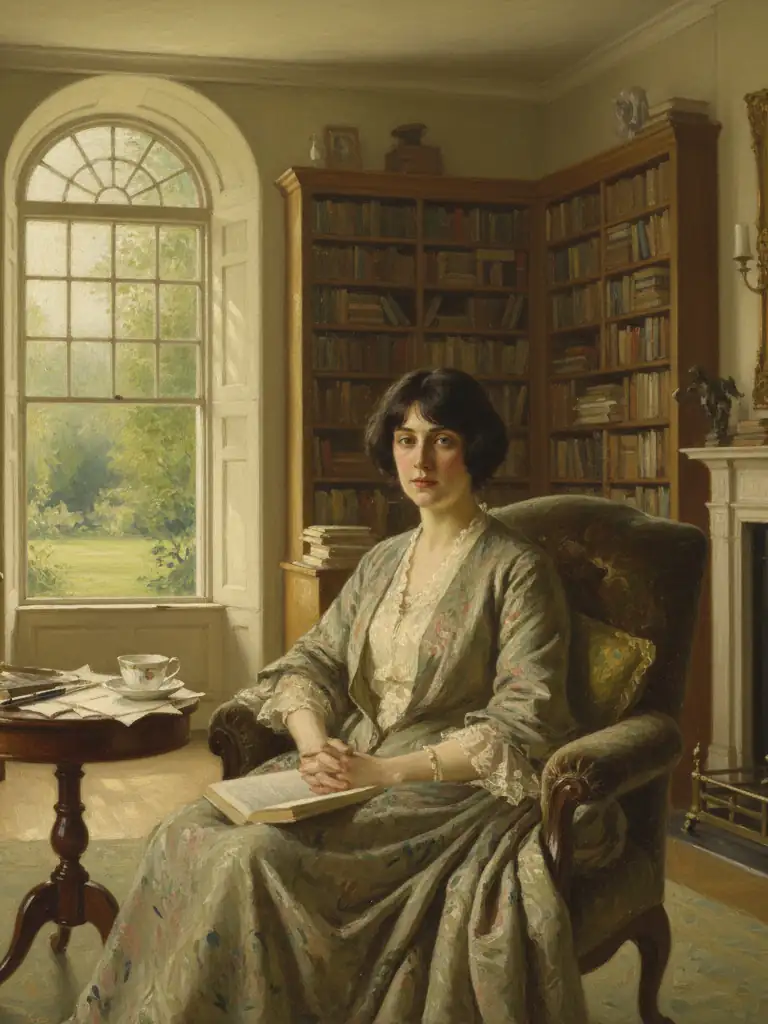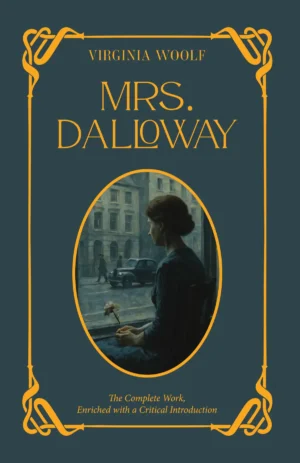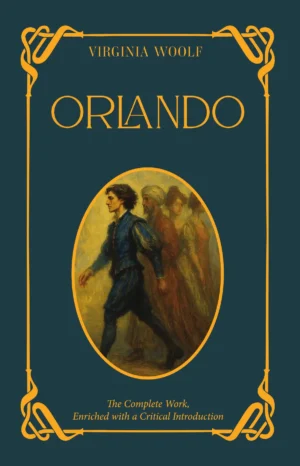
Virginia Woolf
Virginia Woolf (1882–1941) was a central figure in twentieth-century literature and a pioneer of narrative innovation. Born in London in 1882, she was the daughter of the eminent critic and historian Leslie Stephen. After an informal but rigorous ducation at home, she became part of the Bloomsbury Group, a circle of influential writers, artists, and thinkers known for their progressive ideas on art, society, and gender. Woolf began her literary career with The Voyage Out (1915), but it was with Mrs. Dalloway (1925), To the Lighthouse (1927), and The Waves (1931) that she established her reputation as a master of stream-of-consciousness narrative and psychological realism.
Her novels broke away from traditional plot structures, focusing instead on inner consciousness, time, memory, and the complexities of identity. She was also a prolific essayist, best known for A Room of One’s Own (1929), which remains a foundational text in feminist literary criticism. Throughout her life, Woolf struggled with mental health hallenges, ultimately succumbing to them and committing suicide in 1941. Today, she is widely regarded as one of the most important and influential writers of the Modernist era of English literature.
Books by Virginia Woolf
-
Sale!

Mrs. Dalloway
₹85.00 – ₹284.00Price range: ₹85.00 through ₹284.00 Select options This product has multiple variants. The options may be chosen on the product page -
Sale!

Orlando
₹85.00 – ₹265.00Price range: ₹85.00 through ₹265.00 Select options This product has multiple variants. The options may be chosen on the product page
